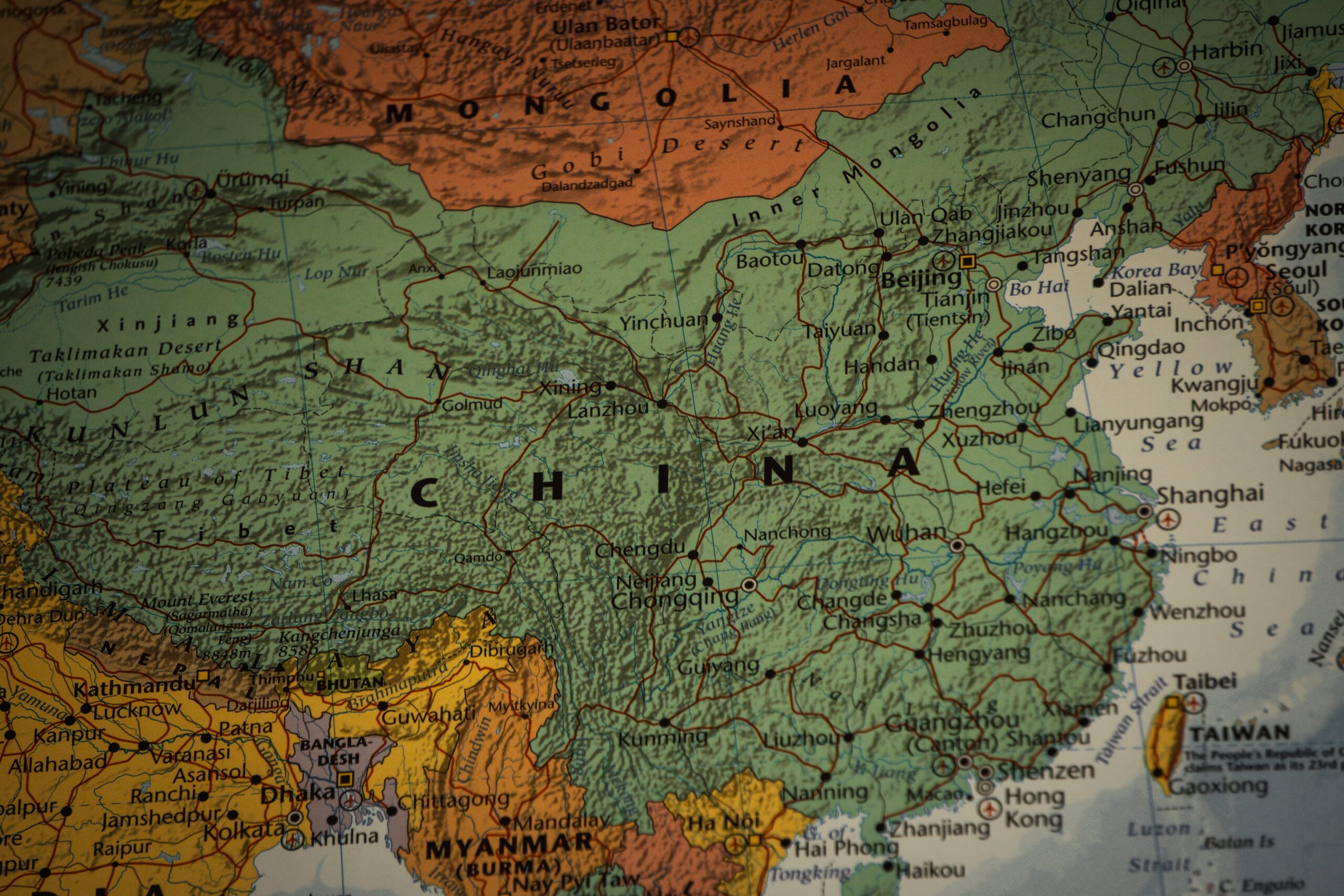8 October 2020
View from the Cotswolds
Good news for a change: The Chinese Puzzle
By Paul Branch
 Good news at last, and absolutely nothing to do with Donald Trump’s medical issue (we wish him and the missus well). But from an unexpected quarter, China no less. In the midst of the unseemly wrangling and playground sniping coming out of the first televised presidential debate between Trump and Biden, at the UN General Assembly another president calmly announced his country’s plan to cut emissions to net zero by 2060 after peaking by 2030. No ifs, no buts, and no details either, but startling that this should come out of nowhere just when the world needs someone, anyone to show determination in turning this particular dark corner in our planet’s future.
Good news at last, and absolutely nothing to do with Donald Trump’s medical issue (we wish him and the missus well). But from an unexpected quarter, China no less. In the midst of the unseemly wrangling and playground sniping coming out of the first televised presidential debate between Trump and Biden, at the UN General Assembly another president calmly announced his country’s plan to cut emissions to net zero by 2060 after peaking by 2030. No ifs, no buts, and no details either, but startling that this should come out of nowhere just when the world needs someone, anyone to show determination in turning this particular dark corner in our planet’s future.
President Xi Jinping didn’t need to make this pledge. Unlike President Trump, he had made no previous commitment to maintaining job security in polluting industries which are slowly choking us into extinction, has no worries about an upcoming election where the overriding priority is protection of his supporter base, and has no fear that he could be out of a job in November (or of relying on his Supreme Court to keep him in work). President Xi already had all these bases covered with his seeming job for life, so good luck to him if he carries on like this.
The EU is also getting serious about climate change with announcements of their own to turn things around and really try to avoid the dreaded 2 degrees increase in average global temperature. Plans for increasingly significant financial investments in clean energy industries plus incentives to wean their citizens off fossil fuels dovetail nicely with China’s ambitions. They too were upbeat in their statement of intent to the UN. It seems Beijing and Brussels had been working together in their planning, which is a comfort considering that Europe and China between them currently produce one third of the world’s atmospheric pollution. Our own Boris was also in there, laudably promoting the UK’s prowess in wind generation ….. His intent to become the Saudi Arabia of wind power was a nice touch, coupled with net zero emissions by 2050.
The other 67% of the world’s pollution has much of its origins in India, Brazil, Russia and of course the USA, right up there in mucky gold medal position at 50%. Trump’s withdrawal from the Paris climate change agreement seems to have left yet another leadership vacancy, at odds with his exalted position, once dubbed the leader of the free world. Maybe as a means of deflecting blame for the spread of COVID-19 beyond his jurisdiction, President Xi has certainly spotted an opportunity to grab the global limelight with his announcement. It may also be good timing to poke Trump over their ongoing trade tariffs spat, or try to move the spotlight off China’s human rights’ issues and Hong Kong, or the western world’s problems with Huawei. Or maybe all of the above. Xi’s stated objective of trying hard to work with the rest of the world to achieve climate stability was in stark contrast to Trump’s antagonistic antics towards anyone he doesn’t like. China stating it does not want another cold war in the midst of global warming also added a note of subtlety.
It does make you wonder though if there is something else afoot behind China’s apparent benevolent and cooperative behaviour. Maybe it heralds a return to the heady post-revolution period of proper communism when Chairman Mao and his government lifted the working classes and peasants out of poverty and starvation with the removal of feudalism and extreme capitalism. From the late 1970s onwards these efforts on behalf of the wider population were gradually and sometimes violently diluted by Deng Xiaoping into a form of alleged socialism which benefitted the powerful at the expense of the rest. President Xi seems to have continued on this trajectory with the authoritarian erosion of human rights and social justice, protecting himself and his own clique of the upper ruling class and an increasingly burgeoning and wealthy middle class. Parallels here possibly with Russia post-Soviet Union, and perhaps even with India if only in terms of the immense gulf between the haves and the have-nothings.
So perhaps Xi’s cunning plan is world domination at the national and personal level, by taking advantage of the gaping leadership void created by Trump’s retreat from the global stage. He has nothing to lose at home by treading the green path towards cleaner energy, indeed his 2060 objective seems a clever way of maintaining employment stability by keeping coal-fuelled energy going whilst ramping up the technology which will eventually deliver cheap electrical power, efficient battery capacity, hydrogen-based power, wind power, and even clean safe nuclear power. And all this for export as well as domestic use.
The other significant factor in China’s favour is the long-term relationships they have carefully nurtured in Africa, with countries which would be amongst the first to suffer from further climate change and which would clearly welcome their Far Eastern benefactor bearing gifts of new energy technology and the environmental and sociological benefits it delivers. Having surpassed the USA ten years ago as Africa’s largest trading partner, China now has interests in most key infrastructure, transport and communications projects (no security issues with Huawei, obviously) with funding incentives in most countries on the continent. Significant exports to Africa are machinery and electronics, for both civilian and military applications, including hi-tech of any and every description; imports to China include crude oil, iron ore and other natural resources to keep the home economy glowing. This strategy gives China a ready-made and very eager market place for its future clean energy generating technology and the myriad of associated consumer products. Good luck to Boris in exporting wind power to Africa against competition like that. The irony though is that America and China are still each other’s largest trading partner, despite the trade spats.
Despite China’s clear self-interest in becoming a major contributor to the climate change revolution, and their way of conducting themselves, which we in the West in some respects find abhorrent, it seems self-defeating to ignore Xi’s timely offer of cooperation to defeat a common enemy. The dangers of appeasement are all too obvious, but threats of sanctions have little effect any more, and military sabre-rattling won’t cut it either – these boys are much bigger and stronger than we are now. So the more effective route to future togetherness might lie in building our relationships back to where they used to be, and then to build some more by means of discussions and diplomacy which we seem to be still rather good at. And we wouldn’t want anyone to upset the apple cart by, say, offering to take in two million Hong Kong asylum seekers and having to accommodate them all in the middle of the South Atlantic.


